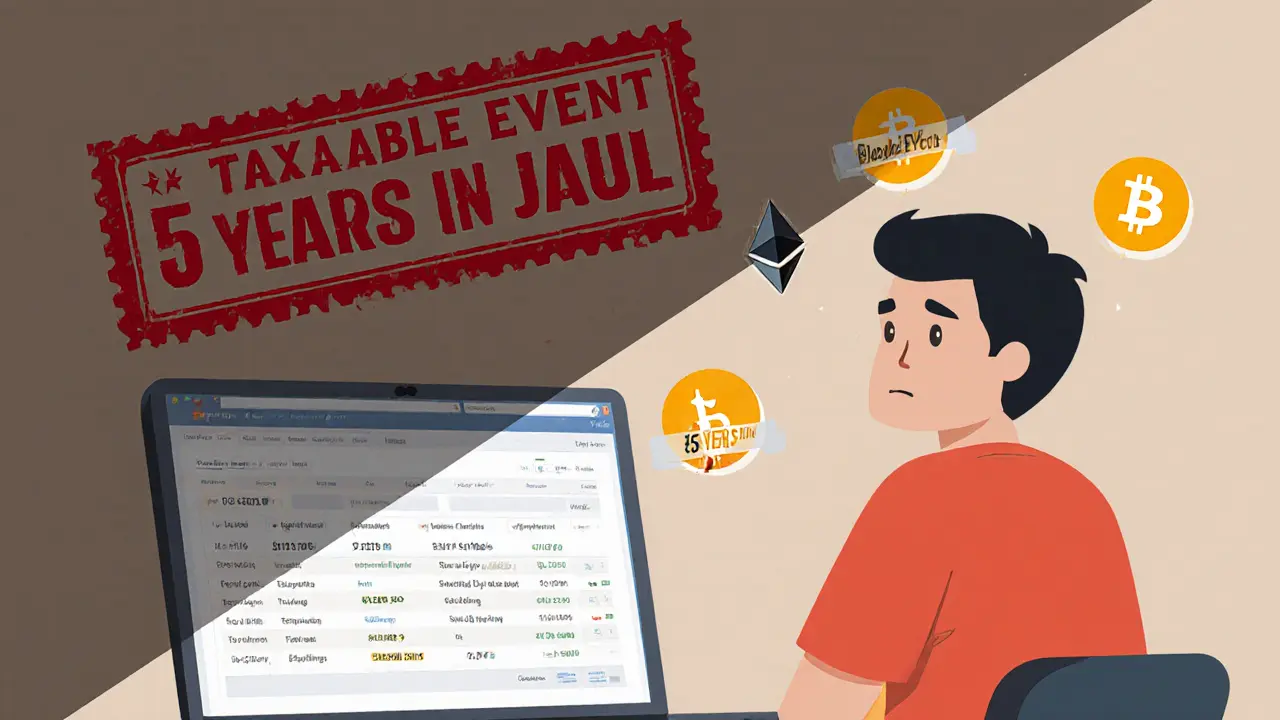Crypto Tax Evasion: What It Really Means and How People Get Caught
When you trade, sell, or earn crypto tax evasion, the deliberate failure to report cryptocurrency income to tax authorities. Also known as crypto tax fraud, it’s not a gray area—it’s a federal offense in most countries. The IRS, HMRC, and other agencies now have tools that track every Bitcoin transfer, every DeFi swap, and every airdrop you claim. You don’t need to be rich to get caught. Even small, unreported gains can trigger an audit.
It’s not just about hiding transactions. Many people think if they didn’t cash out to fiat, they don’t owe taxes. That’s false. Trading ETH for SOL? That’s a taxable event. Earning rewards from staking? That’s income. Using a privacy chain like Secret (SCRT), a blockchain that encrypts transaction data by default doesn’t make you invisible—it just makes you a higher-priority target. Tax agencies don’t care if your transaction is private. They care if you reported it. And they’re getting better at connecting wallet addresses to real identities through exchange KYC data, chain analysis firms like Chainalysis, and even social media posts.
Some think they’re safe because they live in countries with weak enforcement—like Cuba, where crypto is used widely for remittances despite U.S. sanctions—but that’s a dangerous assumption. The U.S. taxes its citizens no matter where they live. The UK goes after residents who move abroad but keep crypto holdings. And countries like Nepal, where crypto transactions over 10 million NPR carry a 3-year prison sentence don’t play around. Even if your country doesn’t enforce taxes now, they’re building systems to catch you later. The blockchain doesn’t forget.
What you’ll find in these posts isn’t a guide to avoiding taxes—it’s a collection of real cases, legal loopholes, and hard truths about how crypto taxation actually works. From Thailand’s 5-year exemption to India’s 30% tax and 1% TDS, these articles show how different governments are handling crypto income. You’ll see how people tried to hide behind fake airdrops, unregulated exchanges like Zeddex or Darkex, or privacy tools like Monsoon Finance’s anonymity mining—and how it backfired. This isn’t theory. These are the mistakes real users made, and the penalties they paid.
Crypto Tax Evasion: 5 Years in Jail and $250,000 Fines
Crypto tax evasion can lead to 5 years in prison and $250,000 fines. The IRS now tracks every transaction with new reporting rules. Learn what you must report, how they catch you, and how to fix past mistakes.
Details +